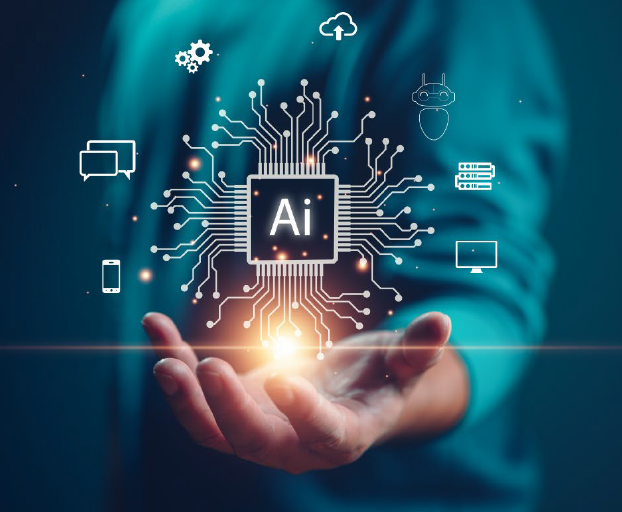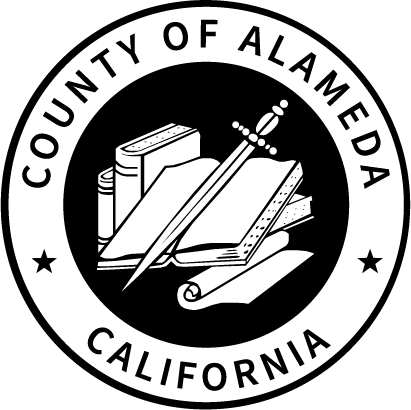

September 1, 2024
(Adopted by the Board of Supervisors, 9/17/24)
Purpose
The Alameda County Generative Artificial Intelligence (GenAI) Policy shall be used by Alameda County Agencies and Departments to follow when acquiring and/or using software that meets the definition of “generative artificial intelligence”.
This Policy appoints the Chief Information Officer and the Information Technology Department, in partnership with the County Administrator, as the responsible party for defining and developing policies and guidelines to address the usage of GenAI within all Alameda County Agencies and Departments to maximize its benefits and mitigate its potential risks.
GenAI is a class of computer software and systems, or functionality within systems, that use large language models, algorithms, deep-learning, and machine learning models to generate new content, including but not limited to text, images, video, and audio, based on patterns and structures of input data. These also include systems capable of ingesting input and translating that input into another form, such as text-to-code systems.
This Policy provides for consistent GenAI behavior across County Agencies and Departments, as well as provides guidance to information owners on how GenAI should be used and secured.
While this policy document includes principles that apply to all AI technologies, generally, the policy statements apply only to GenAI systems.
The County will continue to monitor the Legislative and Regulatory Landscape. In October 2023, President Biden issued an Executive Order aimed at improving the safety and security of AI in the public and private sectors. At the state level, Governor Newsom issued an Executive Order in September 2023 directing state agencies to study the development, use and risks of AI and develop a process for deployment within California’s government.
This Policy recognizes that all departments, vendors, contractors, and volunteers who operate on behalf of the County are also subject to this policy. The Information Technology Department in partnership with the County Administrator will update this policy as advancements, use cases and new information emerge.
Background/Discussion
When employed thoughtfully, GenAI tools possess the capability to enhance Alameda County’s already forward-thinking utilization of technology for public services. The incorporation of text, code, and image-generation functionalities can accelerate or enhance routine tasks.
The County is committed to utilizing Artificial Intelligence (AI) technologies responsibly and ethically to improve processes, enhance service to County residents, and support departments and employees to do their best work.
The need for a countywide GenAI Policy is driven by many factors:
Bias and Unfairness
GenAI models can inadvertently amplify biases present in the data the models are trained with or that users provide the AI. If the training data contains biased or discriminatory patterns, the generated content may reflect those biases. This can lead to unfair or discriminatory outcomes in areas such as text generation, image synthesis, or content recommendation systems.
Misinformation and Manipulation
GenAI can be used to create convincing fake content, including images, videos, and text. This raises concerns about the spread of misinformation and the potential for malicious actors to use GenAI to manipulate public opinion or deceive individuals.
Privacy Concerns
GenAI models often require large amounts of data to be trained effectively. This raises privacy concerns when sensitive or personal information is used in the training process, potentially leading to unauthorized access or misuse of private data.
Intellectual Property Infringement
GenAI models can learn to generate content that resembles existing copyrighted material, which can potentially infringe upon intellectual property rights.
Unintended Consequences
GenAI systems can produce unexpected and unintended outputs. This can result in content that is inappropriate, offensive, or harmful, leading to reputational damage or legal consequences for the creators or users of the models.
Dependency and Overreliance
Relying heavily on GenAI systems without proper understanding or oversight can lead to overreliance on technology, diminishing human creativity, decision-making, and critical thinking.
Ethical Considerations
The development and deployment of GenAI raises ethical questions regarding the responsible use of AI technology. These include issues such as informed consent, transparency, accountability, and the potential impact on employment/job displacement.
Cybersecurity
While GenAI holds promise for improving cybersecurity, it also introduces new challenges and risks that need to be addressed. Balancing the benefits with the potential threats requires ongoing research, development of robust security measures, and ethical considerations in the deployment of AI technologies in the cybersecurity domain.
Policy Drives Consistent Behavior
Policies are an important tool to help guide organizations toward the establishment of safe systems that users can and do depend on every day to make decisions. Having Information Technology policies built on government and industry best practices will help ensure that Agencies and Departments are making their systems safe and reliable for all stakeholders and ensuring that services are delivered in the most cost effective and secure manner. Policies also help drive consistent behavior across organizations which reduces risk and increases efficiency.
This Policy is aligned with best practices for state and local government and was developed as a collaborative effort between the Information Technology Department (ITD) and the County Administrator’s Office (CAO). It is intended to provide guidance to Alameda County Agencies and Departments and provide the basis for developing and maintaining additional policies, standards, guidelines, and procedures around GenAI.

Policy
This Policy applies to the procurement, development, implementation, and usage of GenAI systems for all County entities.
It is the Policy of Alameda County that:
- The Chief Information Officer (CIO), in collaboration with the County Administrator (CAO), has responsibility for establishing policies and standards related to technology including GenAI technologies. Given the early adoption and constant evolution of GenAI, the CIO and CAO will review and update this policy periodically to keep it aligned with ethical and legal standards and technological advancements;
- The Information Technology Department shall have visibility into all GenAI software connected to the County network;
- The Information Technology Department in partnership with the General Services Agency will approve all GenAI systems and products prior to being purchased or used to ensure compliance with County Technology, Cybersecurity, and GenAI policies;
- Agencies and Departments will ensure no GenAI tools, systems or products will be purchased or used in their agencies and departments without prior approval of the Information Technology Department;
- Agencies and Departments will ensure all staff take GenAI Training as administered by the Information Technology Department when available;
- Agencies and Departments are encouraged to use tools such as ChatGPT, Gemini, Bing or Dall-e with the following guidelines:
- Experiment with GenAI for drafting, leveling, and formatting text and explanatory images using public information.
- Work with the Information Technology Department and experiment thoroughly with various use cases before using GenAI in the delivery of programs or services.
- Thoroughly review and fact check all AI-generated content. You are responsible for what you create with GenAI assistance.
- Disclose when and how GenAI was used in your output.
- Agencies and Departments should not:
- Enter into public GenAI systems any information that cannot be fully released to the public.
- Publish GenAI output without full knowledgeable review and disclosure.
- The Information Technology Department will immediately block any GenAI tool, system or product that is unauthorized or poses a risk to the County as defined by this policy.
- Any deviation from this policy will require the Alameda County Agency or Department to obtain Board of Supervisors approval.
Agency/Department Discretion
Each Agency or Department is required to understand and comply with the County-wide GenAI policies and standards established by the Information Technology Department and the County Administrator. Agencies/Departments can develop their own policies and standards for their specific needs so long as they comply with and support the County-wide Policy and any additional policies and standards defined by the Information Technology Department and the County Administrator.
Conclusion
This Policy is intended to protect Alameda County in its use of GenAI tools by promoting consistent behavior across County Agencies and Departments, as well as providing guidelines to Agencies/Departments to help manage risk and protect the County’s information assets. GenAI is rapidly developing and legislative and regulatory frameworks at the state and federal level continue to evolve which may require periodic updates to this policy.
Alameda County is committed to utilizing GenAI technologies responsibly and ethically to improve processes and enhance services to County residents.
Appendix I: Definitions
Algorithms: are a set of rules that a machine follows to generate an outcome or a decision.
Artificial Intelligence (AI): refers to a group of technologies that can perform complex cognitive tasks like recognizing and classifying images or powering autonomous vehicles. Many AI systems are built using machine learning models. For an AI task like image recognition, the model learns pixel patterns from a large dataset of existing images and uses these patterns to recognize and classify new images.
Bing: is a conversation GenAI chatbot built by Microsoft.
Gemini: is a conversation GenAI chatbot built by Google.
Chatbots: are computer programs that simulate conversations. Chatbots have been around for a few decades. Basic chatbots (without GenAI) use Machine Language to understand human prompts and provide more-or-less scripted answers that can guide users through a process. GenAI chatbots can provide more human-like, conversational answers.
ChatGPT: is a conversational GenAI chatbot built by OpenAI.
Dall-e: is a GenAI application that can generate images based on text prompts.
Deep Learning: a type of machine learning based on artificial neural networks to learn from data
Generative AI (GenAI): refers to a group of technologies that can generate new content based on a user provided prompt. Many are powered by Large Language Models.
Large Language Models (LLMS): LLMs are advanced language models trained on extensive text data to generate coherent responses to user prompts. While they capture complex language patterns, their responses may not always align perfectly with context. Additionally, they can reflect biases present in their training data, such as gender and racial biases. Despite these limitations, LLMs are fundamental to the development of GenAI applications.
Machine Learning (ML): is a method for learning the rules of an algorithm based on existing data.
Training Data: The dataset that is used by a machine learning model to learn the rules.
Document History
Version#: 1
Date: 01/31/2024
Author/Editor: ITD
Description of Changes: Original
